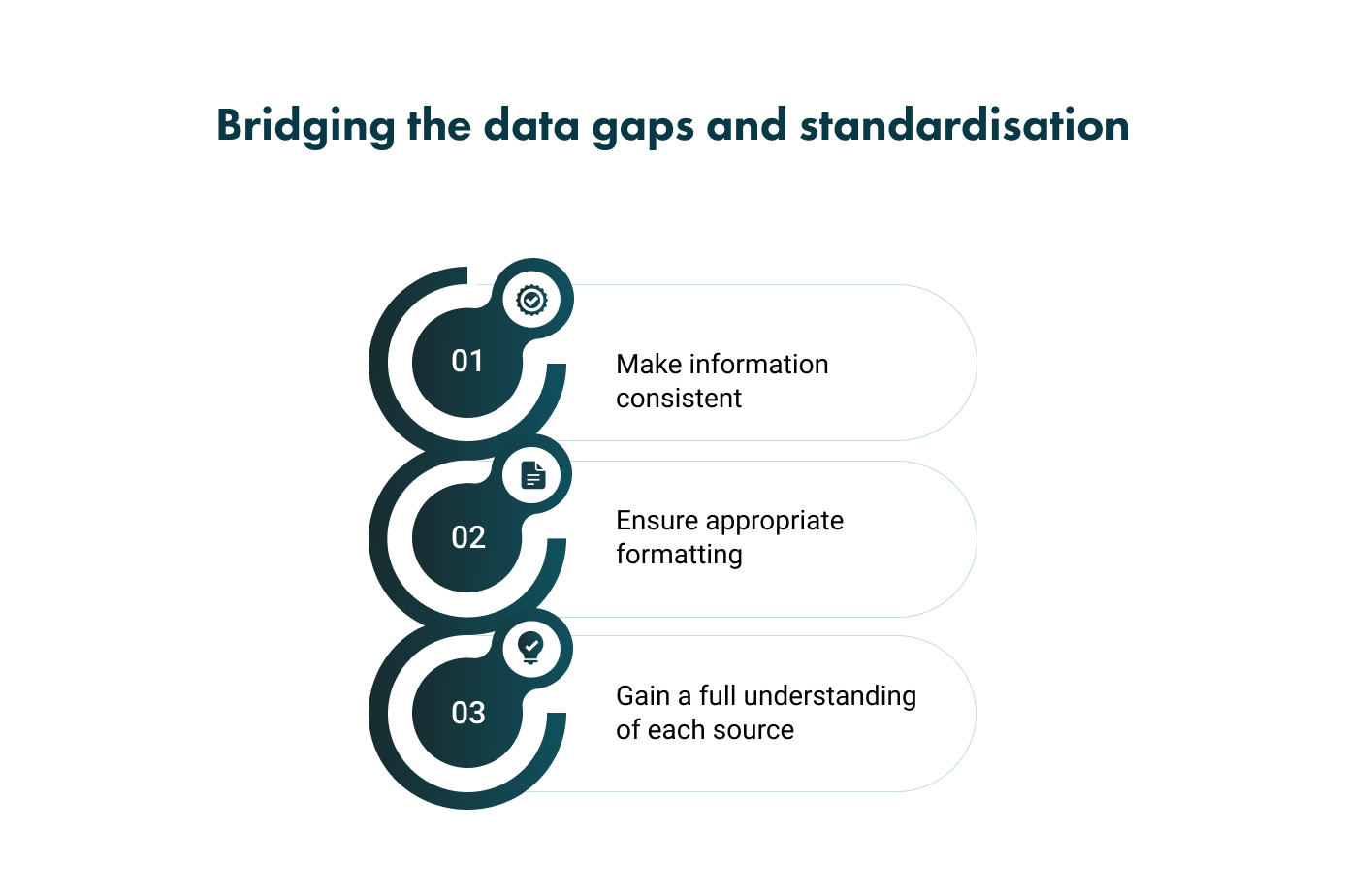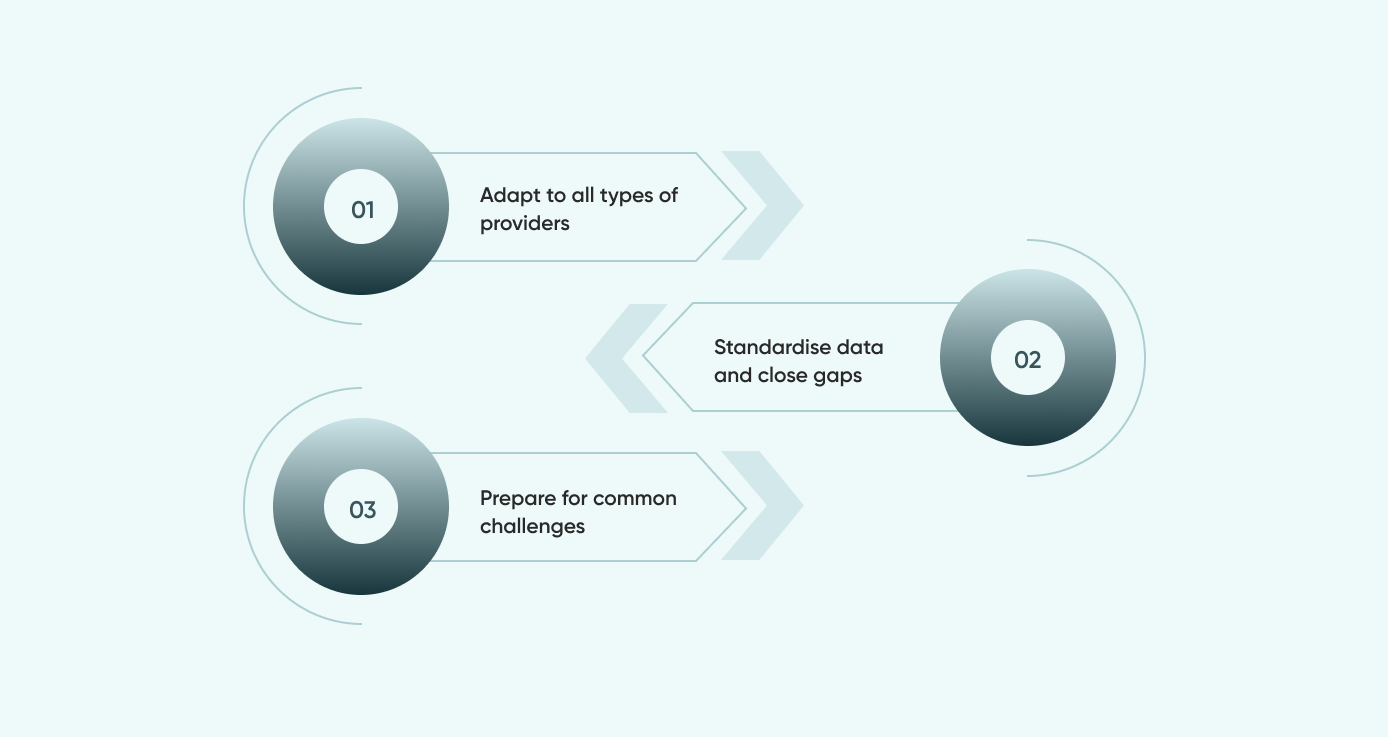Thriving in the European Travel Tech Startup Scene: Overcoming Data Challenges


The European travel tech startup scene has seen tremendous growth in recent years, with many companies looking to tap into the vast potential of this industry. It’s expected that companies in the travel technology niche will generate more than 14 billion USD by 2028, according to an IMARC group report.
At Go Wombat, we have extensive experience in travel tech, and we are excited to share our insights to help aspiring entrepreneurs navigate the challenges and succeed in this exciting field.
One of the primary challenges we’ve found while creating software solutions for this industry is working with fast-changing big data, which is necessary to provide valuable services to customers.
In this article, we will explore the challenges and potential solutions related to data acquisition and management in the travel tech industry.

The dynamic nature of big data in travel tech
Working in the travel industry means dealing with vast amounts of data, whether it's hotel bookings, flight tickets, or financial transactions.
This is especially true for startups targeting a global audience rather than focusing on a very small, niche market.
For example, the ski booking system we created for Hellasgården resort in Stockholm would require almost no data set compared to a startup aiming to provide booking services worldwide.
Regardless of the scope, data in the travel industry is constantly changing, which means startups need to be agile and adaptable to stay competitive. It's essential to have a robust system in place that can process and analyse this data quickly and efficiently to provide up-to-date and accurate information to users.
Ironically, by the time you finish downloading the data, it might already be outdated. This highlights the importance of maintaining a system that can keep up with the fast-paced nature of the travel industry.
The high cost of data sources
Quality data comes at a price, and for many startups, the cost of accessing reliable data sources can be prohibitive.
Scraping popular booking websites or free data sources often isn't sufficient for the needs of a travel tech startup.
Premium data sources like leading global distribution systems and travel technology provider Amadeus not only save development time but also provide more accurate and comprehensive information.
However, these sources can have limitations such as small data caps and slow response times due to high demand.
Differentiating collaboration with smaller data providers
With so many startups relying on the same data sources, it can be difficult to create a unique offering that sets your travel tech startup apart from the rest.
One way to overcome this challenge and differentiate your business is by partnering with smaller, more specialised data providers like Cangooroo (a platform that has been integrated into the Juniper ecosystem). And Sunny Cars is a company that offers all-inclusive car rental services.
Smaller data providers can offer flexibility, customisation, and a more unique data set. In addition, they are often willing to modify their data output to meet the specific needs of your startup.
This approach also comes with its own set of challenges, as smaller providers typically offer fragmented or niche data. In other words, you'll need to work with multiple sources to compile a complete data set.

Bridging the data gaps and standardisation
To effectively use data from multiple sources, startups must invest time and resources into filling gaps and normalising the information collected.
Making information more consistent is a critical aspect of working with diverse data sources, as it allows for the seamless integration of information into a single, coherent system.
The process of matching and standardising data can be incredibly challenging. Different data providers might use unique terminology, data structures, or formatting, which can lead to inconsistencies and make integration difficult.
Startups have to invest in developing a comprehensive understanding of each data source and create a robust normalisation process that can accommodate these differences.
Consider identifying common data elements and establishing a standardised format to facilitate integration. Moreover, create a data dictionary or schema that outlines the structure and relationships between data points, and develop custom algorithms or scripts to automate the normalisation process, taking into account the specific nuances.
Preparing for data provider failures and incomplete documentation
Data providers are not infallible; they can provide incorrect, outdated information or even return errors. Furthermore, the APIs of data sources might lack some documentation, or the documentation could be outdated.
Startups often spend many hours communicating with development teams on the other side to resolve issues and understand the reasons for mistakes. Even after completing the code, data sources can change in the future, forcing you to start the matching process from scratch.
To tackle these challenges, it's essential for startups to:
- Develop strong relationships with data providers to facilitate open communication and address issues more effectively.
- Regularly review and update their understanding of data sources, APIs, and documentation to minimise integration issues.
- Implement a system for tracking changes in data sources and APIs, allowing for proactive adjustments when necessary.
- Create robust error-handling and data validation mechanisms within their systems to ensure data integrity and reduce the impact of provider failures.
Integrating big data and custom-built software solutions
One of the ways to work around the many challenges that travel technology startups face is through custom software. Simply put, personalised tools give travel tech startups the exact capacities they need to adapt to non-standardised, gigantic datasets.
Here are three ways custom software solutions can help European travel companies overcome data challenges.

Adapt to all types of providers
Tailored software solutions give travel tech startups the ability to work with all types of providers. These platforms can adapt to each provider’s database size, formatting, and other nuances, resulting in data sets that are more accurate and complete.
Standardise data and close gaps
Once the data enters your system, standardising these values can simplify all subsequent processes later on. Custom software can help you transform the information into a set standard and close delays as well as other related production gaps.
Prepare for common challenges
It’s common to encounter obstacles when trying to find suitable solutions to store, process, and protect the information collected. If you work with a custom software developer, you can get a system designed to help you overcome these challenges with more ease.
Unlock Success with Premium Software Development
Contact us


Conclusion
Navigating the data challenges in the European travel tech startup scene can be daunting. But with the right strategies and an adaptable approach, startups can overcome these hurdles and thrive in the industry.
By understanding the dynamic nature of big data, selecting the right data sources, normalising and standardising data, and preparing for data provider failures and incomplete documentation, entrepreneurs can position their travel tech startups for success in the competitive European market.

Go Wombat has experience helping travel tech companies with data challenges. Contact us for a consultation.
How can we help you ?





